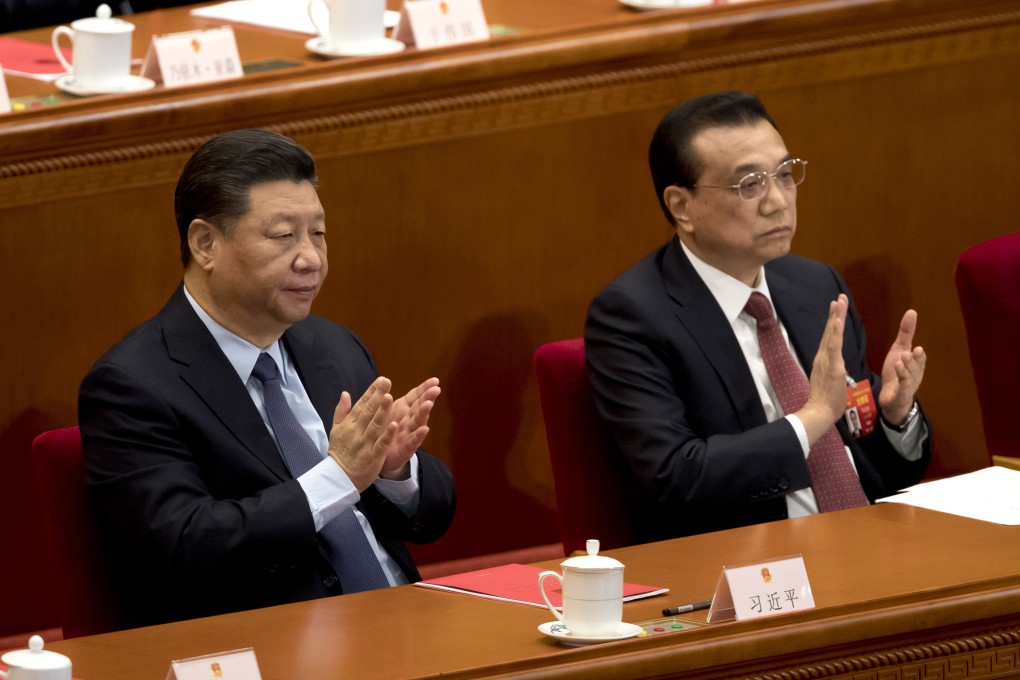Chinese Premier Li Keqiang’s quick economic fixes pass with zero votes against – a show of approval by National People’s Congress?
- Ballot often seen as barometer of premier’s popularity, with hundreds having opposed some of Li’s past reports – but he is seen as face of Xi Jinping’s policies
- In Friday’s other ballots, on supreme court and prosecutor reports, 156 and 71 delegates vote against respectively

Tax and fees cuts, stabilisation of employment and more social services – these were some of the quick fixes pledged by Chinese Premier Li Keqiang in his annual work report, to address uncertainties in economic outlook and international relations. And in a rare move, not one delegate opposed the report when the National People’s Congress voted on it on Friday.
In the ballot on Li’s report, 2,945 delegates voted in favour and three abstained.
Although the NPC, China’s highest legislative body, is often described by observers as a rubber-stamp chamber and has never vetoed a work report, the number of opposing votes is often seen as an indicator of the level of endorsement and popularity for a government leader or a top government agency.
Even the number of abstentions is seen as a subtle indicator of disapproval by carefully selected delegates to the elite assembly.
For example, 378 delegates voted against Li’s first report as premier in 2014. Three years later, when he finished his first term as premier, 180 voted against his report. A small number of opposition votes was considered acceptable to the Communist Party.
